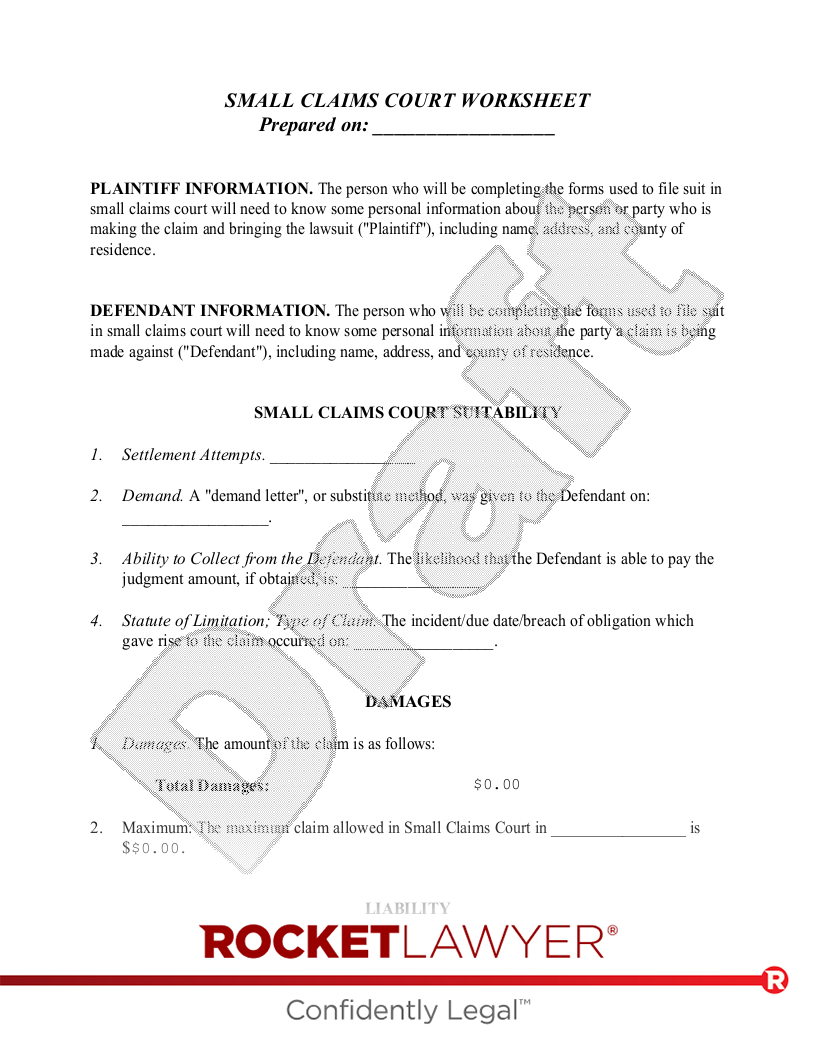How Does Small Claims Court Work?
Small claims court claims are brought upon a party by filing a claim at the local courthouse. The filing will require the name of the defendant, a description of the incident, any proof that exists, and other pertinent information demanded by your respective court. A relatively close court date will be supplied, and papers will be served to the defendant.
Moderation
Most courthouses will require that both parties sit in a room together with a legal moderator that will hear both sides of the argument. The moderator will attempt to have you and the defendant reach an agreement. You can bring a lawyer to the courthouse with you at this time. If you need to ask a lawyer a question, you can ask a question to any of our attorneys in our On Call network.
If moderation doesn't work, you'll be able to plead your case in front of a judge. Most cases will be remedied with the help of a moderator.
How Does Monetary Disbursement Work?
If there was a contract that is deemed legally binding, cases are usually very quick to remedy. Cases that do not have a contract may have their values changed if the judge sees fit. As a plaintiff, the maximum amount of money that can be received in small claims court will be the county limit plus any court fees.
Upon an agreement, the defendant will, normally, have 30 days from the agreement to pay the money back to the plaintiff. If the money is not received, you'll be able to return to small claims court.
If you're unsure of what the monetary limit is in your county, you can call the local courthouse and ask what are the small claims court limits in your county.
Please note: This page offers general legal information, not but not legal advice tailored for your specific legal situation. Rocket Lawyer Incorporated isn't a law firm or a substitute for one. For further information on this topic, you can Ask a Legal Pro.
